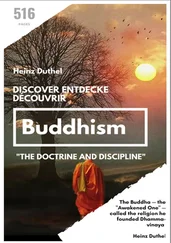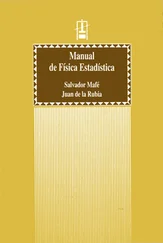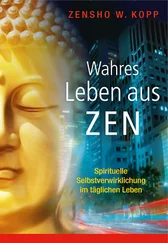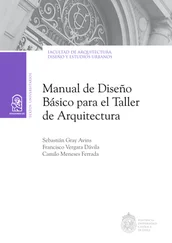Teitaro Suzuki - Manual of Zen Buddhism
Здесь есть возможность читать онлайн «Teitaro Suzuki - Manual of Zen Buddhism» весь текст электронной книги совершенно бесплатно (целиком полную версию без сокращений). В некоторых случаях можно слушать аудио, скачать через торрент в формате fb2 и присутствует краткое содержание. Жанр: Религиоведение, Религия, Руководства, на английском языке. Описание произведения, (предисловие) а так же отзывы посетителей доступны на портале библиотеки ЛибКат.
- Название:Manual of Zen Buddhism
- Автор:
- Жанр:
- Год:неизвестен
- ISBN:нет данных
- Рейтинг книги:3 / 5. Голосов: 1
-
Избранное:Добавить в избранное
- Отзывы:
-
Ваша оценка:
- 60
- 1
- 2
- 3
- 4
- 5
Manual of Zen Buddhism: краткое содержание, описание и аннотация
Предлагаем к чтению аннотацию, описание, краткое содержание или предисловие (зависит от того, что написал сам автор книги «Manual of Zen Buddhism»). Если вы не нашли необходимую информацию о книге — напишите в комментариях, мы постараемся отыскать её.
Manual of Zen Buddhism — читать онлайн бесплатно полную книгу (весь текст) целиком
Ниже представлен текст книги, разбитый по страницам. Система сохранения места последней прочитанной страницы, позволяет с удобством читать онлайн бесплатно книгу «Manual of Zen Buddhism», без необходимости каждый раз заново искать на чём Вы остановились. Поставьте закладку, и сможете в любой момент перейти на страницу, на которой закончили чтение.
Интервал:
Закладка:
IX. PRAYER ON THE OCCASION OF FEEDING THE HUNGRY GHOSTS
If one wishes to know all the Buddhas of the past, present, and future, one should contemplate the nature of this Dharmadhatu essentially as the creation of Absolute Mind.
Adoration to the Buddhas in the ten quarters;
Adoration to the Dharma pervading the ten quarters; Adoration to the Sangha in the ten quarters;
Adoration to Sakyamuni the Buddha who is our Master; Adoration to Kwanzeon the Bodhisattva, who is the great compassionate and pitying one, ready to save beings from afflictions;
Adoration to Ananda the Arhat who is the expounder of the Teaching.
Namu sabo totogyato boryakite, yen!
Sammola sammola, un!
Namu suryoboya totogyatoya tojito, yen!
Suryo suryo boya suryo boya suryo, somoko!
Namu samanda motonan, ban! [1]
Adoration to Hoshin [2]the Tathagata;
Adoration to Taho [3]the Tathagata;
Adoration to Myoshishin [4]the Tathagata;
Adoration to Kohashin [5]the Tathagata;
Adoration to Rifui [6]the Tathagata;
Adoration to Kanroo [7]the Tathagata;
Adoration to Omito [8]the Tathagata.
Namu omitoboya totogyatoya,
Toniyato,
Omiritsubomi,
Omirito,
Shitabomi,
Omirito bigyaratei,
Omirito bigyarato gyamini,
Gyagyano shitogyari,
Somoko. [9]
By the supernatural power of this Dharani the food and drink is purified, and this we offer to the spiritual beings as numerous as the sands of the Ganga. We pray that they shall all be fully satisfied and abandon their greed; that they shall all leave their abodes of darkness and be born in the blissful paths of existence; and further that taking refuge in the Triple Treasure they shall awaken the desire for supreme enlightenment and finally come to the realization of it. The merit they thus attain is inexhaustible and will continue on to the end of time, making all beings equally share in this Dharma-food.
O you hosts of spiritual beings, we make this offering of food to you all, which we pray will fill the ten quarters and that all beings of your kind will partake of it.
By the practice of this meritorious deed we pray that we repay what we owe to our parents, who have done all they could for our sakes. May those who are still alive continue to enjoy their happy and prosperous lives for ever, while those who are no more with us be released from suffering and born in the land of bliss.
We pray that all sentient beings in the triple world who are recipients of the fourfold benefaction, together with those beings suffering in the three evil paths of existence and tormented with the eight kinds of calamities, may repent of all their sins and be cleansed of all their sores, so that they may all be released from the cycle of transmigration and be born in the land of purity.
We pray to all the Buddhas, all the Bodhisattva-Mahasattvas in the ten quarters, of the past, present, and future, and to Mahaprajna-paramita, that by virtue of this merit universally prevailing, not only we but all beings shall equally attain Buddhahood.
X. GENERAL PRAYER [1]
By the Bhikshus all present here
The mystic formula of Surangama has been recited as above,
Which is now dedicated to all the Nagas and Devas who are protectors of the Dharma,
And also to all the holy assemblies of the spiritual beings who are guardians of this monastery and surrounding district.
May all beings in the three evil paths of existence variously suffering the eight kinds of disasters be thereby released from the afflictions!
May all beings in the triple world who are recipients of the fourfold benefaction thereby participate in the merit!
May the state continue in peaceful prosperity with all its warlike activities stopped!
May the wind blow in time, the rain fall seasonably, and the people live happily!
May the entire congregation sharing in the exercise cherish the higher aspirations!
To go beyond the ten stages with a cap, and this without much difficulty!
May this monastery keep on its quiet life, free from disturbances.
And the patrons and devotees grow not only in faith but in wisdom and bliss!
[We pray this to] all the Buddhas and Bodhisattva-Mahasattvas in the ten quarters, of the past, present, and future, and to Mahaprajna-paramita!
XI. PRAYER OF THE BELL
Would that the sound of the bell might go beyond our earth,
And be heard even by all the denizens of the darkness outside the Iron Mountains ( cakravala ) !
Would that, their organ of hearing becoming pure, beings might attain perfect interfusion [of all the senses],
So that every one of them might come finally to the realization of supreme enlightenment! [1]
II. THE DHARANIS
Properly speaking, the dharani has no legitimate place in Zen. That it has nevertheless crept into its daily service is clue to the general characteristics of Chinese Buddhism of the Sung dynasty, when the Japanese Zen masters visited China and imported it as they found it then, together with the Shingon elements of Chinese Zen. In China the Shingon did not thrive very long but left its traces in Zen.
Dharani, the root of which is dhr , “to hold” or “to convey”, is ordinarily translated by the Chinese tsung-ch'ih , “general holder”, at neng-ch'ih , “that which holds”. A dharani is considered as holding magical power in it or bearing deep meaning. When it is pronounced, whatever evil spirits there are ready to interfere with the spiritual effect of a ritual, are kept away from it.
In the following pages the three most frequently read dharanis are given. When translated they convey no intelligent signification. They mostly consist of invocations and exclamations. The invocation is an appeal to the higher powers, and the exclamation is to frighten away the evil spirits. That the practical result of these utterances is not to be judged objectively goes without saying.
I. DHARANI OF REMOVING DISASTERS
Adoration to all the Buddhas! Adoration to the Teaching that knows no obstructions!
Thus: Om! Khya khya khyahi khyahi (speak, speak)!
Hum hum!
Jvala jvala prajvala prajvala (blaze, blaze)!
Tistha tistha (up, up)!
Stri Stri (?)!
Sphata (burst, burst)!
One who is quiescent!
To the glorious one, hail!
II. DHARANI OF THE GREAT COMPASSIONATE ONE
Adoration to the Triple Treasure!
Adoration to Avalokitesvara the Bodhisattva-Mahasattva who is the great compassionate one!
Om, to the one who performs a leap beyond all fears!
Having adored him, may I enter into the heart of the blue-necked one known as the noble adorable Avalokitesvara! It means the completing of all meaning, it is pure, it is that which makes all beings victorious and cleanses the path of existence.
Thus:
Om, the seer, the world-transcending one!
O Hari the Mahabodhisattva!
All, all!
Defilement, defilement!
The earth, the earth!
It is the heart.
Do, do the work!
Hold fast, hold fast! O great victor!
Hold on, hold on! I hold on.
To Indra the creator I
Move, move, my defilement-free seal!
Come, come!
Hear, hear!
A joy springs up in me!
Speak, speak! Directing!
Hulu, hulu, mala, hulu, hulu, hile!
Sara, Sara! siri, siri! suru, suru!
Be awakened, be awakened!
Have awakened, have awakened!
O merciful one, blue-necked one!
Of daring ones, to the joyous, hail!
To the successful one, hail!
To the great successful one, hail!
To the one who has attained mastery in the discipline, hail!
To the blue-necked one, hail!
To the boar-faced one, hail!
To the one with a lion's head and face, hail!
To the one who holds a weapon in his hand, hail!
To the one who holds a wheel in his hand, hail!
To the one who holds a lotus in his hand, hail!
To the blue-necked far-causing one, hail!
To the beneficient one referred to in this Dharani beginning with “Namah,” hail!
Adoration to the Triple Treasure!
Adoration to Avalokitesvara!
Hail!
May these [prayers] be successful!
To this magical formula, hail!
Интервал:
Закладка:
Похожие книги на «Manual of Zen Buddhism»
Представляем Вашему вниманию похожие книги на «Manual of Zen Buddhism» списком для выбора. Мы отобрали схожую по названию и смыслу литературу в надежде предоставить читателям больше вариантов отыскать новые, интересные, ещё непрочитанные произведения.
Обсуждение, отзывы о книге «Manual of Zen Buddhism» и просто собственные мнения читателей. Оставьте ваши комментарии, напишите, что Вы думаете о произведении, его смысле или главных героях. Укажите что конкретно понравилось, а что нет, и почему Вы так считаете.








